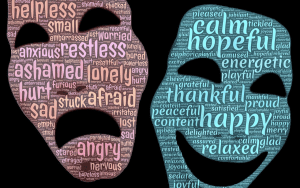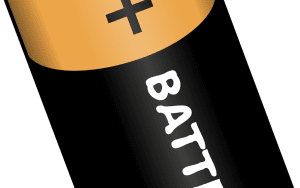Reasons Why Good People Do Wicked Things
 Learn the most common explanations for why otherwise good people do wicked things or act badly. Everybody knows that even the best individuals may have terrible days. The mental manipulations that lead otherwise morally-sound individuals astray.
Learn the most common explanations for why otherwise good people do wicked things or act badly. Everybody knows that even the best individuals may have terrible days. The mental manipulations that lead otherwise morally-sound individuals astray.
Good People Do Wicked Things
Even Good People Do Wicked things at times. Why?
It just takes the proper conditions for decent people to become complicit in evil. The fault usually rests in the realm of psychology.
Good individuals don’t typically fall off the deep end like Bernie Madoff or Kenneth Lay regarding immoral behaviour. Instead, their thoughts deceive them into engaging in inappropriate actions.
“Integrity is doing the right thing, even when no one is watching.” A quote from C. S. Lewis:
Dr. Muel Kaptein, a Rotterdam School of Management professor specializing in business ethics and integrity management, has spent decades researching dishonesty. He just released research that explains why otherwise moral people sometimes act badly.
Still, they make occasional blunders; when they do, they tend to be spectacular. It’s as if every little slip-up they could have made on the road added to this colossal gaffe. Saddened, embarrassed, and ashamed by their actions, they seek help in therapy to better understand how this could have occurred.
Human Thought: A Mysterious Phenomenon
First, we must accept that no one except God can truly know another person’s thoughts.
Professionals may conduct in-depth interviews with the villain and research their background, including medical and psychological examinations. However, we may need to discover the full story behind what seem like acts of random evil.
In 1 Corinthians, Paul argued that it is impossible to “know the things” of another person.
Even the villain can be clueless about his motivations at times. However, this “non-explanation” is likely only an excuse for hiding the real cause.
Reasons Why Good People Do Wicked Things
1, People commit awful things when they have an ideology to justify them.
Abuse at the Abu Ghraib jail grows.


Sgt. Ivan Frederick, United States Army, reclines on an Iraqi prisoner. Commons of Wikimedia
Zimbardo makes the case that people are likelier to engage in bad behaviour when they believe in an overarching ideology.
He testified as an expert witness in the prosecution of U.S. Army Staff Sgt. Ivan “Chip” Frederick was found guilty on five counts of mistreating detainees at Abu Ghraib and given an eight-year jail term.
In his famous quote, “All evil begins with a big ideology,” psychologist Philip Zimbardo said just that. Whose pernicious ideas led to the invasion of Iraq?
Protection of the nation. In Brazil, torture is legitimized by the notion of national security. You always start with the big, good thing because once you have the major philosophy, it will explain everything else you do.
Barriers for People With Disabilities
2, Some people may misuse authority if they are given it.
Zimbardo is famous for directing the Stanford Prison Experiment, a 1971 jail simulation.
Participants acted as either “prisoners” or “guards.”
Zimbardo had to discontinue the experiment early because the “guards” were so harsh to the “prisoners” in just six days.
It’s fascinating to learn that peer pressure and institutional forces influenced student volunteer guards to disregard the potential harm towards their fellow student prisoners. Let’s continue to explore and understand these complex dynamics to prevent harmful behaviour in the future.” writes the American Psychological Association.
3, When individuals hide their identities behind a uniform, a hood, or a mask, they become more ruthless.


Zimbardo elaborated on how people become more violent when they believe they are anonymous.
Violence rises when people’s identities are hidden from them. “You minimize social responsibility,” Zimbardo said. Since no one can pin any specific blame on you, you are not personally responsible.
When everyone is wearing masks, there is a collective impact. It makes other people afraid of you because they can’t see your face, and you become less human.
Social scientists have speculated that the anonymity of online commentators is a contributing factor to their virulence.
4, People might lose sight of the bigger picture if they have “tunnel vision” on their aims.
While having objectives and striving to meet them is essential, doing so with tunnel vision might cause one to overlook moral considerations.
Business ethics expert Muel Kaptein claims that Enron’s failure to ensure profitability and ethical behaviour may be traced back to the company’s generous incentive to increase sales.
5, When bad deeds are given new names, individuals are more likely to commit them.
Renaming immoral actions as more acceptable, such as “greasing the wheels” or “financial engineering,” might make them more acceptable to those involved. Kaptein argues that giving morally ambiguous behaviours more neutral titles might normalize them in the eyes of the public.
-
George Orwell provides several instances from past events:
- Bombarding defenceless settlements from the air, forcing the villagers out into the countryside, machine-gunning the animals, and setting fire to the homes with incendiary rounds is called pacification. It’s termed “transfer of population” or “rectification of frontiers,” it involves uprooting millions of farmers and sending them on foot with only the possessions they can carry. Eliminating unreliable aspects includes holding people for years without trial, shooting them at the back of the neck, or sending them to die of scurvy in Arctic timber camps.
6, When individuals don’t believe you appreciate them as a person, they start to think they can do anything they want.


Employees in huge companies may start to feel that they are just another gear in the system.
According to Kaptein, this might motivate dishonest actions. Workers who feel disconnected from the company’s direction and goals are more prone to steal from or disregard their employer.
7, A person’s propensity to cheat increases if they adopt a dominant position.
According to studies in psychological research, people tend to feel more confident when they adopt a wide stance. But there’s a downside to striking a “power pose”: a study by MIT professor Andy Yap revealed that the confidence gained from a wide stance led participants to act more aggressively and were more inclined to cheat.
For him, “if you take an expansive pose, it can actually lead to power,” he tells Business Insider. “Postures are incidentally related to power, and one of those behaviours is dishonest behaviour.”
8, It’s simpler to cheat when someone is exhausted. Weary from work


University of Washington professor Christopher Barnes conducted a series of tests showing that people’s self-control decreased as their fatigue increased.
So, individuals are more prone to cheat on their partners when sleep-deprived, which is normal for 26% of Americans.
Regarding sleep, “Organizations need to give more respect,” Barnes argues. “As leaders, let’s prioritize work-life balance and recognize that overworking may lead to unethical behaviour. A positive workplace culture benefits everyone.
9, If people in your group think you’re dishonest, you could start behaving that way.
People’s actions are affected by how they are seen and treated.
Psychologists call this phenomenon the “Pygmalion effect,” it occurs when employees are treated with suspicion and as though they would steal from the company. Students who are told they will fail to do worse in school, whereas exposed workers will perform well and do a better job.
10, When individuals believe they are being directed, they often respond negatively.
Psychologists discuss “reactance,” the phenomenon in which people revolt against authority after feeling resentment against the imposition of regulations limiting their freedom.
College restrooms were randomly assigned to have one of two notices posted on the walls. They state:
– “Do not write on these walls under any circumstances.”
– “Please don’t write on these walls.”
More graffiti was found on the walls marked “Do not write on these walls under any circumstances.”
11, When punishment is imposed as a fine, the issue at hand shifts from one of morality to one of economics.


There may be unintended consequences when unethical actions are met with monetary penalties. Once anything is framed in those terms, according to Kaptein, it loses its moral significance and becomes a different kind of calculation.
Instead of focusing on right and wrong, one must weigh the cost of getting caught against the cost of paying the punishment.
12, When people are hungry, they act crueller than they normally would.
Hunger, as obvious as it may seem, impairs one’s self-control.
An Ohio State University research discovered “that the lower the blood sugar of a study participant, the lower the self-control,” according to Lifehacker. Participants were instructed to prick a voodoo doll, which stood in for their partner when upset with them. When the better half became irritated, the more needles were placed, the lower the blood sugar.
13, People are more prone to break the rules when their surroundings are destroyed.
When he was mayor of New York City, Rudy Giuliani popularised the “broken window theory” to reduce crime. The plan was to clean up the city, tighten down on minor offences, and restore some sense of order to deter more serious criminal activity.
People’s perception of authority decreases when they observe chaos or disarray. It is easier to cross ethical and legal lines in such a setting.
14, They want to “cash in” on their good reputation when they’ve been moral for a long time.
It’s common for morally upright people to convince themselves that they’ve earned enough “ethical credit” to indulge in immoral activities.
According to research conducted by psychologists, consumers who have just purchased sustainable items may be more prone to lying and stealing than those who have recently purchased ordinary products.
16, Assigning labels to individuals makes it easy to be nasty to them.
Albert Bandura, a psychologist at Stanford, conducted an experiment that demonstrated how labels dehumanize individuals and lead to more violent behaviour.
Several pupils were given electrical shocks as part of the experiment.
Immediately before the start of the trial, the students overheard the assistant communicating with the experimenter using one of three humanized approaches:
- Unconvincing: “The subjects from the other school are here.”
- Personable: “The subjects from the other school are here; they seem ‘nice.'”
- Imprisoned: “The subjects from the other school are here, they seem like ‘animals.'”
Students who viewed their peers as “animals” increased their shock levels far more than the neutral group. At the same time, those who were told their targets were “nice” were significantly less violent.
16, People are more prone to commit wicked acts if they are sanctioned by those in positions of power.
Yale psychologist Stanley Milgram made important discoveries about the link between obedience and bad behaviour.
In one experiment, volunteers were instructed by a scientist in a white lab coat to administer electric shocks to a victim (an actor) when he failed to memorize a list of phrases. The voltage of the shocks varied from 15 to 450 volts.
Milgram hypothesized that just three per cent of subjects would administer the maximal shock. However, 65% of people who participated in the study endured the full force of the shock.
Milgram emphasized that regular individuals merely performing their duties can easily become instruments of a dreadful and ruinous course of action, even without harbouring any particular animosity.
Furthermore, when the calamitous consequences of their work become evident, and they are requested to carry out activities that run counter to essential ethical principles, only a handful of people possess the means to rebuff authority.




